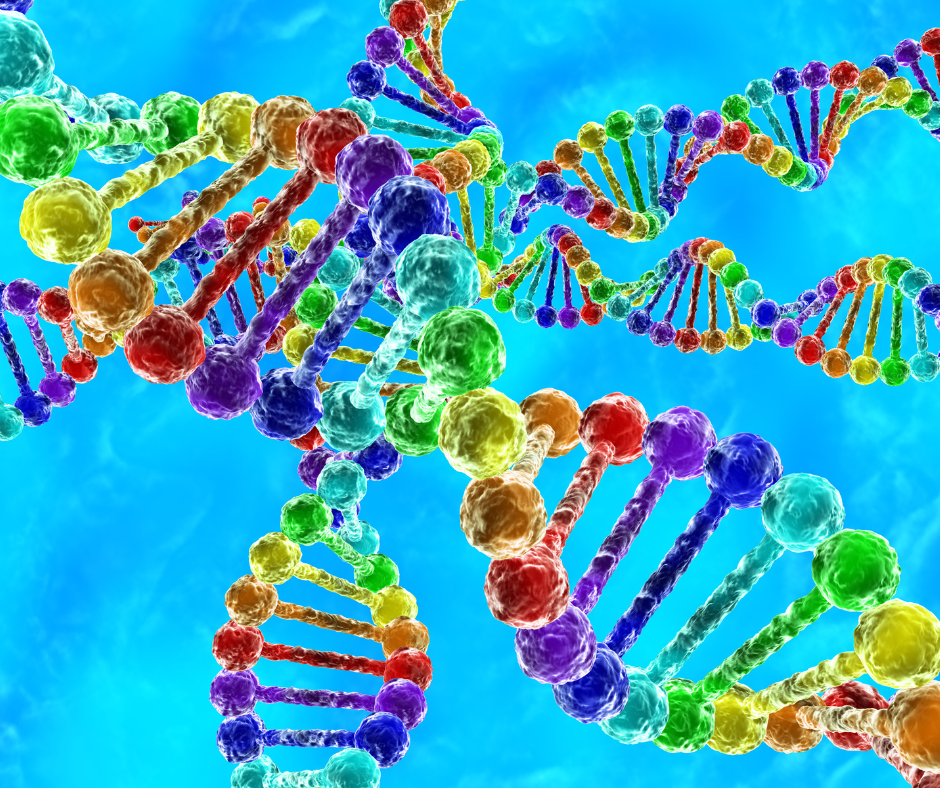 Hi Mr. Evan!
Hi Mr. Evan!
Thank you for your answer to my question last time! I was really troubled by it and your answer helped me. I have another question today which is on a sensitive topic. My question has something to do with homosexuality.
I recently read an article from Reasons To Believe about a study which showed that there is a biological basis for sexuality known as the “gay gene”. The article’s contents got me anxious. Romans 1:26-27 states that homosexual behavior is not good. The passage even refers to homosexual relations as unnatural. There are also other passages in the Bible which imply that homosexual behavior is unnatural, like how men having long hair is unnatural (because long hair on men referred to the homosexual practices of people at the time).
I think the RTB article encapsulated the question well,
“The Bible calls homosexuality unnatural, but it appears that some recent scientific studies call it natural. Does this research jeopardize biblical inerrancy?”
Emma
 I’m always happy to answer questions, Emma. That’s what I’m here for! I do wonder why Reasons To Believe didn’t address the objection that this study raises in the article they posted (thus sending you here to Cerebral Faith). That seems like a major oversight for an apologetics ministry like RTB.
I’m always happy to answer questions, Emma. That’s what I’m here for! I do wonder why Reasons To Believe didn’t address the objection that this study raises in the article they posted (thus sending you here to Cerebral Faith). That seems like a major oversight for an apologetics ministry like RTB.
I can’t really speak to the science of the issue as genetics is outside of my field of expertise.
But I can speak to the theological questions. What implications does this have on inerrancy? Well, first if you just spend any amount of time in the “Interpreting Genesis 1” blog category section of this site, you’ll know that I categorically reject concordist approaches to scripture (contrary to Reasons To Believe). I think God accomodated His message to the scientific understanding of his initial recipients. He spoke theological truths (e.g the creation account) via the scientific framework of the day. He answered questions the Ancient Near Eastern audience would have been interested in. For example, with regards to Genesis 1; it was who created everything and why, and what function everything serves, rather than when and how everything came into being. God told an origins account that ANE peoples would have been interested in, not an origins account modern scientifically minded Americans would be interested in. And it was no less true. The statement on day 4, for example, that the greater light and lesser light was assigned the function of giving light on the earth in the day and night respectively, is true! And it’s true that God set up the functions of time, weather, and fecundity for the purpose of human civilizations (on Days 1, 2, and 3 respectively). They were also interested in knowing whether or not Yahweh was superior to the pagan gods of the nations around them, hence why we find some anti-pagan polemics in the text.
I think this carries over into The New Testament. When Paul says homosexuality is unnatural in Romans 1, I don’t think he means that it’s contrary to nature in the sense that there’s nothing in nature that might cause or predispose someone to same sex attraction. Rather, he means that it’s just not the way things are supposed to be. Men are supposed to be attracted to women and vice versa. A man is supposed to have sexual relations with a woman, and not another man.
Moreover, consider the theology of the fall. Mankind’s nature is corrupted. Paul even calls the sinful nature “the flesh” in various places, indicating that he thought sin was a part of the body. “Now the works of the flesh are evident: sexual immorality, impurity, sensuality, idolatry, sorcery, enmity, strife, jealousy, fits of anger, rivalries, dissensions, divisions, envy, drunkenness, orgies, and things like these. I warn you, as I warned you before, that those who do such things will not inherit the kingdom of God.” (Galatians 5:19-21 ESV)
It would not be at all surprising to me if, as a result of the fallen human condition, some people became genetically predisposed to homosexual acts. Getting drunk is a sin (Proverbs 20:1; 23:20; 29–32; Isaiah 5:22; Ephesians 5:18), but it’s been well established for a long time that alcoholism is genetic.
Fortunately, The Bible promises that whether we’re predisposed to a certain sin or not, we’re not causally determined to commit it. God will give us a way of escape so we can avoid the sin (see 1 Corinthians 10:13) and if we don’t, it’s on us. Like God said to Cain, when sin crouches at our door and desires to rule over us, we can and should choose to rule over it instead (see Genesis 4).
So to conclude, this study, if valid, would only invalidate inerrancy if Paul was teaching that there’s nothing in our genes that would propel us towards homosexuality. I don’t think he was, and based on his repeated interchange of the words “the flesh” and “sin nature”, I think a good case can be made that he believed and taught the exact opposite.
I’d like to address one more thing. You said “There are also other passages in the Bible which imply that homosexual behavior is unnatural, like how men having long hair is unnatural (because long hair on men referred to the homosexual practices of people at the time).”
I actually don’t think that that verse you’re referring to about homosexuality at all. The underlying presupposition is really bizzare. In Episode 86 of The Naked Bible Podcast, Dr. Michael S. Heiser talks about how back in the first century, Hippocrates taught that sperm was stored in the hair on one’s head and that there were channels in the body that transported the sperm from the head to the pubic hair area. This would then go into the penis, and the semen would come out there. This is why it was considered unnatural for a man to have long hair. It was not man’s nature to store semen. Man is supposed to eject semen! And women are supposed to store it. So it was good for a man to have short hair, but not for a woman. But, it gets even more interesting than that. Paul says that women ought to have their hair covered “because of the angels”. What do the angels have to do with this? Well, given that the hair was seen as a semen-storage organ, the hair was basically seen as an extension of the genitalia. The science undergirding Paul’s message has long been debunked obviously, but the message itself is still true (there’s that divine acommodation to the science of the day again). The message is that we ought not show our genitals during public worship! We don’t consider the hair to be a genital anymore, so we’ve rightly abandoned mandatory head coverings. A theologically true statement rode on the back of faulty science in 1 Corinthians 11 as in Genesis 1.
But why are the angels a concern here? Dr. Michael Heiser argues in the aforementioned podcast episode that this makes sense if Paul had the Genesis 6 incident in mind. In Genesis 6, the “Sons of God” went into “The daughters of men” and bore children to them. These children were the Nephilim; giants. As Heiser argues in his book Reversing Hermon: Enoch, The Watchers, and The Forgotten Mission of Jesus Christ, and as I argue in my paper “Genesis 6: The Nephilim – Descendents Of Cain, Neanderthals, Ancient Kings, or Angel-Human Hybrids?” the biblical evidence indicates that “The Sons Of God” were angelic beings, and the Nephilim were angelic human hybrids (freaks of nature in fact) that resulted from them. Paul would have been well aware of this interpretation as it was taught in the psudipegraphical book of 1 Enoch and Peter and Jude endorse this interpretation in their own epistles (as I say in the aforementioned paper I wrote). In this case, Paul would be concerned that women not show their genitals (their hair) in public not only because it’s indecent, but also because he doesn’t want any watching angels to be sexually aroused and the Nephilim incident occur all over again! 1 Corinthans 11 is bizzare and quite interesting. I highly recommend listening to Episode 86 of The Naked Bible Podcast for a more in depth treatment of this subject. It is fascinating!
I hope this alleviated your concerns. God bless you.

If you have any questions about Christian theology or apologetics, send Mr. Minton an E-mail at CerebralFaith@Gmail.com. It doesn’t matter whether you’re a Christian or Non-Christian, whether your question is about doubts you’re having or about something you read in The Bible that confused you. Send your question in, whatever it may be, and Mr. Minton will respond in a blog post just like this one.
Share this:
- Share on Facebook (Opens in new window) Facebook
- Share on X (Opens in new window) X
- Print (Opens in new window) Print
- Email a link to a friend (Opens in new window) Email
- Share on Pinterest (Opens in new window) Pinterest
- Share on Reddit (Opens in new window) Reddit
- Share on LinkedIn (Opens in new window) LinkedIn
- Share on Tumblr (Opens in new window) Tumblr
Discover more from Cerebral Faith
Subscribe to get the latest posts sent to your email.




Thank you for your answers! They were of great help! I am happy that biblical inerrancy still stands! Please allow me to ask another question on the topic.
After I sent this question, I did some reading and accidentally found the Nashville Statement. I read several reviews of it, including one from a Christian I recognize, Jamin Hübner, and ended up a bit bothered. On Article 8 of the NS, he commented,
“The bigger issue is the internal tension: a person who experiences same-sex attraction can “live a rich and fruitful life pleasing to God” and “walk in purity” even though this experience is fundamentally contrary to “the natural goodness of God’s original creation.” Whether this is genuinely contradictory, one wonders why same-sex attraction is such a catastrophic problem for the Christian… (etc)”
Is it really contradictory to say that homosexual desire is not part of the original plan of God but people who experience same-sex attraction can still be followers of Christ at the same time? He also has some comments on the other articles of the NS. I agree with some parts of his critique while I disagree with some. For example, while I agree with the first half of his critique of Article 6, I feel conflicted with the latter half. (Review found here if you want to read it: https://www.cbeinternational.org/resource/article/priscilla-papers-academic-journal/nashville-statement-critical-review)
Another related question: My friend pointed out something interesting recently. In Genesis, God said that all creation was good AFTER He finished creation. By the time human beings have begun to exist, several animals must have already exhibited homosexual behaviors like observed now in the wild. After all, there was a long, long time before humans emerged (we both hold to OEC).
With this in mind, we are wondering if this behavior is part of what God called good in Genesis, or if this behavior was part of God’s original plan/creation. Can we really say then that homosexual behavior is not part of God’s intended design?
**HOMOSEXUAL ATTRACTIONS AND GOD’S INTENT FOR CREATION**
I agree that a person can experience homosexual attractions and still live a faithful and God-pleasing life. What The Bible prohibits is not same sex attraction, but homosexual behavior. You cannot control who you’re attracted to, and it would unreasonable for God to mandate that we find certain kinds of people sexually attractive rather than others. This is why it is partly misguided to try to “pray the gay away” or go to some group to try to rehabilitate oneself if they have same sex attractions. Of course, having opposite sex attractions is preferable, so I wouldn’t advise someone to not pray “God, please make me straight”, but one shouldn’t get upset if God doesn’t reorient their sexual attraction. I remember seeing a television program many years ago that had people going to some kind of “Exodus” ministry (?), and they were praying hard with other Christians, and doing everything they could to make themselves not have same sex attractions, but God never answered their prayer.
.
I’ve heard other testimonies in which God did remove the same sex attraction. Why He chooses to remove the homosexual orientation of some and not others, I can’t even begin to speculate. But regardless, all God requires of them is for men to not have sex with other men and women not to have sex with other women.
.
What about the statement that even having the attraction is “contrary to the natural goodness of God’s creation”? I think that’s true and I don’t think that that contradicts the statement that one can live a God pleasing life while having homosexual attractions. God’s intent was for no one to sin, to always do the right thing, and to always act in accordance with His desires. But given free will, God may not have been able to actualize a world in which people always freely do the right thing. When Adam and Eve fell, we were infected with a “sin nature”, and many things within the creation went wrong (aging and death, thorns and thistles, increased pain in childbearing, etc.). Homosexual attractions could be a manifestation of the sin nature, which God never desired us to have, but permitted for some reason.
.
I have severe OCD. Not the caricature of a person just desiring to be organized. The actual, diagnosable, border-line crippling anxiety disorder. –> https://www.psychiatry.org/patients-families/ocd/what-is-obsessive-compulsive-disorder <-- I don't think this was part of God's desire either. Yet I can still live a faithful life in spite of my disorder. There are lots of things that are "contrary to 'the natural goodness of God’s original creation.'" yet we these don't pose barriers to a relationship with God. . . **GENESIS**
For God’s statement that all creation was “very good” in Genesis 1:31, there are several presuppositions in the question that I think are mistaken. First is the assumption that what God meant by “good” was moral goodness. But this couldn’t possibly be because every single day ends with God saying the created thing was “good”. What does it mean to say that the day-night cycle, the precipitation cycle, or the fruit-bearing trees are “good” in a moral sense? These are inanimate objects. Rather, what is probably meant by “good” is that the thing God created was functioning exactly as He intended it too. This especially fits well with my view of Genesis 1 that I share with John Walton, that Genesis 1 is about functional origins instead of material origins. God decreed how everything would function for humanity (days 1-4) and how humanity would function in His Comic Temple (Day 6, Genesis 1:26-27). For God to call the creation “very good” at the end of the week just meant that everything was up and running, so now He could come into His Temple and “rest”.
.
The second mistaken presupposition is that animals are moral agents. They’re not. So a male shark who forcibly copulates with a female shark doesn’t “rape” the shark. A lion who kills a wildebeest *kills* the wildebeest, but he doesn’t “murder” the wildebeest. What lower animals do or do not do shouldn’t be looked at as an example of what is permissible for God’s image bearers to do. Not only are we two different type of creatures, but saying “well animals do it, so it must be okay” commits the is/ought fallacy. This fallacy occurs when derive an ought from an is. So animals who engage in homosexual behavior aren’t engaging in moral sin because they aren’t moral creatures to begin with. And since you said you were an OEC, I would think that in light of what I’ve said, homosexuality in the animal kingdom prior to God’s creation being finished would be no more of an issue than predation occurring prior to that.
.
Btw, I don’t accept OEC, but EC (Evolutionary Creationism). I bring this up because I think this is more of an issue for my view; the view that humans evolved from and share common ancestry with other animals. One might claim that sinful tendencies (including the proclivity to homosexuality) evolved within the human species. But three options could be proposed as alternatives;
–
(1) perhaps it could be rebutted that once humanity developed to the point where they could be suitable image bearers, God hit the reset button on some of the nasty traits we picked up along the evolutionary way.
.
(2) Perhaps God guided the evolution of the primate lineage in such a way so as to not pick up some of the tendencies that other animals do.
.
(3) If one holds to “The Genealogical Adam and Eve” hypothesis set forth by S. Joshua Swamidass, perhaps Adam and Eve were de novo creations (unlike the animals outside the garden) and God would have removed the evolved sinful nature from everyone outside the garden at some point, except that Adam, as the federal head of the human race, failed to obey God, so not only did Adam get a sin nature, but the homo sapiens outside the garden weren’t redeemed from the ones that they got from evolution.
.
Any of these three alternatives would solve the problem. I most favor the first option; that God would have miraculously hit the genetic/behavioral reset button as soon as homo sapiens fully developed.